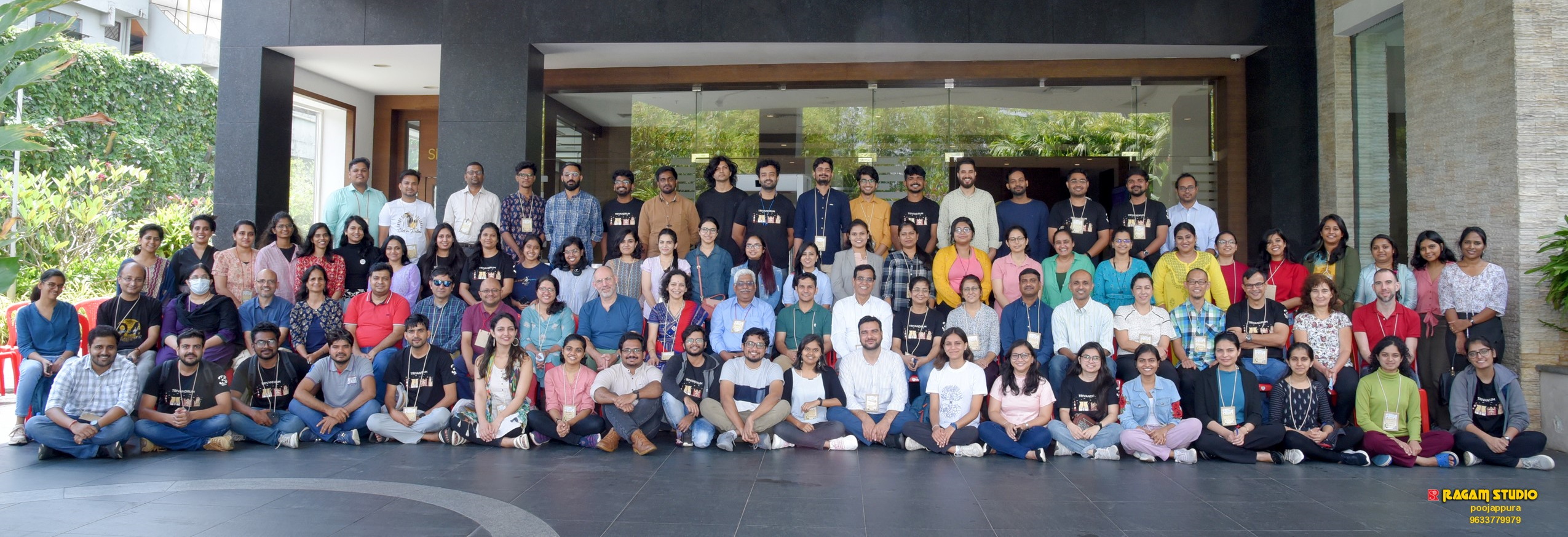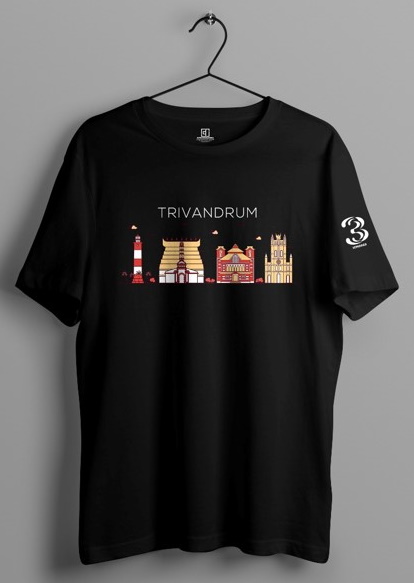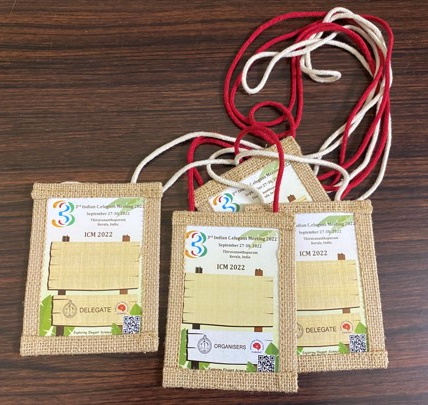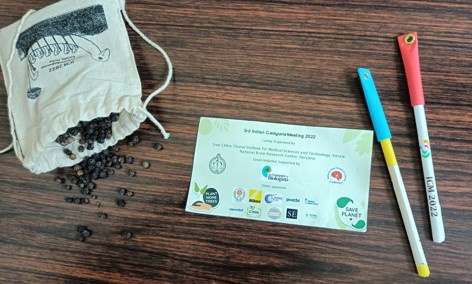15 November 2022
 The third Indian C. elegans Meeting took place in Trivandrum, Kerala, from 27-30 September 2022. The programme featured a diverse spread of the latest research from the nematode community. This year, the meeting also had an environmental focus, with the organisers using one of our Sustainable Conferencing Grants to reduce the environmental impact of their event.
The third Indian C. elegans Meeting took place in Trivandrum, Kerala, from 27-30 September 2022. The programme featured a diverse spread of the latest research from the nematode community. This year, the meeting also had an environmental focus, with the organisers using one of our Sustainable Conferencing Grants to reduce the environmental impact of their event.

As is typical for most scientific meetings, delegates were travelling from an array of different regions and so arrival times on the first day were somewhat staggered. This made it difficult to predict how many attendees would make it in time for a welcome meal. To combat this, the organisers took those that had arrived by lunchtime to a local restaurant. This reduced waste, since there was no risk of over catering, and gave delegates their first taste of the local area and cuisine.
With the attendees fed and watered, the scientific programme began in earnest. This year, it featured 11 international speakers, with half of these giving their talks online. This online element allowed some speakers to attend who might not have been able to travel for various reasons, and reduced travel emissions. Free virtual registration was also possible, which made the meeting more accessible and resulted in a higher total attendance level than usual. Despite some delegates attending remotely, there were plenty of networking opportunities; the organisers incorporated plenty of free time into the schedule and invited speakers back into online rooms to chat with the early-career researchers in attendance.

There were other sustainability touches as well. Vegetarian food was served throughout the meeting, and conference badges were made from jute, a material native to the Indian subcontinent. The organisers also designed the conference bag and t-shirt to promote their reuse. For example, they avoided adding the meeting logo and instead designed the t-shirt to reflect the location of the meeting. The Malabar Coast is known for its black pepper, so delegates also received a welcome pack containing Piper nigrum grown by a local farmer, as well as paper-based pens each containing a seed that they could plant after use. Overall, these measures aimed to both improve the meeting’s sustainability and to promote its host region.
The choice of venue was also an important consideration, and the organisers opted for a conference centre that uses solar energy for 60% of its power usage. All delegates were housed in this venue for the duration of the meeting, which reduced day-to-day transport emissions. This arrangement had the added benefit of creating a community feel and promoting attendance at the talks.
“Without the incentive from The Company of Biologists, we would never have thought so deeply about improving our sustainability,” co-organiser Dr Anoop Thekkuveettil

“We started looking for venues that were more environmentally friendly and that also had a good internet connection so the hybrid elements of the meeting would not fail. We also made sure that the venue was in the city with good public transport links, so that delegates could catch the train. To further encourage the use of public transport, we also offered to reimburse the fares of those who arrived by train. In the end, the station was only 500 metres from our chosen conference centre!”
- Learn more about our Sustainable Conferencing Grants and how to apply for one.








You must be logged in to post a comment.